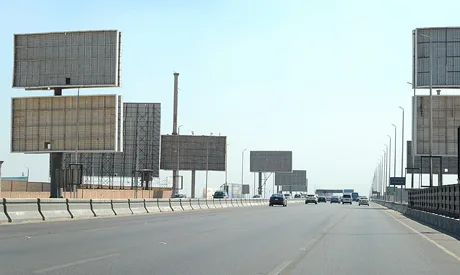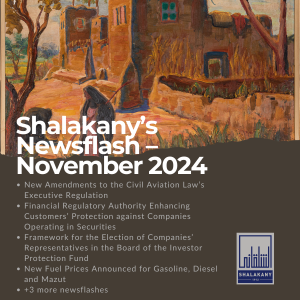Law No. 208 for 2020 regulating advertisements on public roads was promulgated on 30 November 2020 (the “Law”). The Law repeals the previously enacted Law No. 66 for 1956 regulating advertisements, in addition to certain provisions of Law No. 84 for 1968 on public roads and the Construction Law No. 119 for 2008.
The Law came into effect on 2 December 2020, and its executive regulations should be issued by the Prime Minister within six months from that date.
We will guide you through the key highlights of the Law.
The definition of Advertisement and Billboard
The Law defines an advertisement and a billboard as any visual product, whether written, drawn or made of any material, intended to be displayed or published for advertisement purposes or for the provision of informational, promotional, or news-related messages to road users.
The National Agency for Regulating Advertisements on Public Roads
The Law establishes the National Agency for Regulating Advertisements on Public Roads (the “Agency”) which falls under the jurisdiction of the Prime Minister and shall be regulated by a decree to be issued by the Prime Minister, based on a proposal by the minister in charge of housing affairs.
The Prime Minister’s decree shall include the Agency’s objectives, while specifying its financial resources, expenditures and representative.
The Agency will be the exclusive entity vested with determining the standards and rules governing advertisements and billboards on public roads, including the use of renewable energy and security cameras.
Scope of Application
Any advertisements or billboards created by public entities, and state-owned agencies and companies are excluded from the Law’s overall scope.
In addition, the Agency, in some cases and based on the proposal of the head of the competent authority, which is either municipalities, the New Urban Communities Authority, the General Authority for Roads, Bridges, and Land Transport or, other entities, may exempt some advertisements or billboards from the application of the provisions of the Law. However, in this case the exemption decision must include the conditions which shall be met in respect of the advertisement/billboard.
Licensing
According to the Law, in order to place an advertisement or a billboard, a license must be obtained from the competent authority. Licenses shall not be issued for any advertisements or billboards which violate the principles and standards laid down by the Agency.
Furthermore, a license shall be issued for a period not exceeding three years, with fees not exceeding EGP 10,000. A license may be renewed for a similar period or periods.
The following cases are exempt from licensing:
-
- Rent or sale advertisements of the property itself (i.e. the property on which the advertisement or billboard is placed);
- Advertisements issued by public authorities.
- Billboards by non-profit entities concerning the purposes of these entities.
- Billboards related to public events (e.g. religious, national, sports, cultural or social events).
Penalties
Whoever places an advertisement or a billboard in violation of the Law and the decisions implementing it, shall be subject to a fine not less than twice the value of the advertisement/billboard works cost and not exceeding three times that value. The penalty shall be multiplied by the number of violations.
Furthermore, the advertisement or billboard in violation shall be removed, and the offender must pay double the fees prescribed for the license. If the offender does not comply with the aforementioned obligation, the competent authority may do so at their expense.
Market Reaction
Although there has been no official public reaction from the regulator or key market players regarding the Decree to date, we find that establishing the Agency as a central body to issue standardized criteria for advertisements and billboards can be a positive step towards avoiding irregular practices implemented in this regard. We await practical implementation of the Law after the issuance of its executive regulations and the Agency’s standards and rules.



